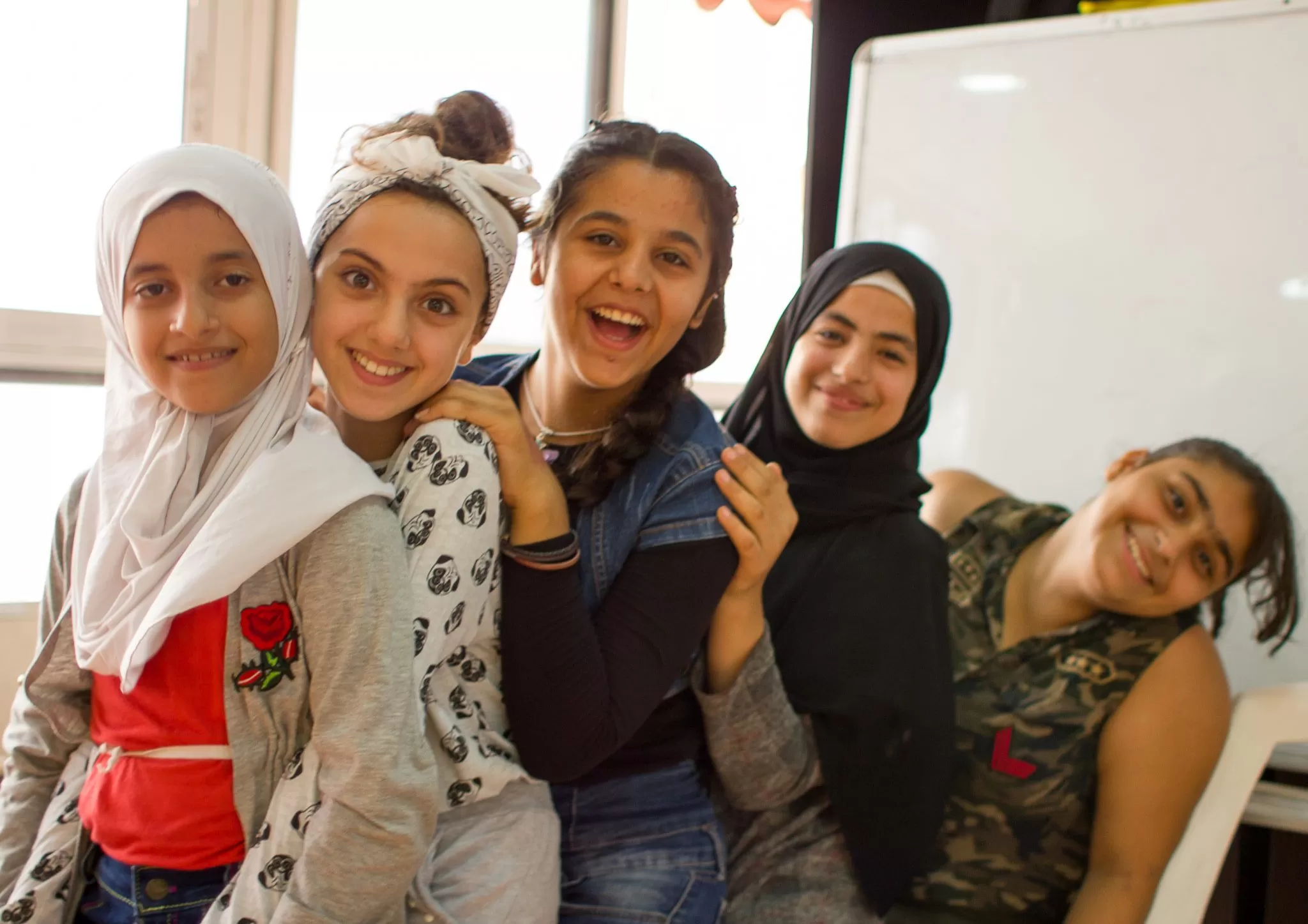Class starts at 1:30pm with Arabic, but it is not until 2:30 when we, the volunteers, enter. First for mathematics, then for English starting at 3:10.
The class is called “Basic Literacy and Numeracy,” or BLN for short. It is during the third shift of class for the day, but the girls – and it is a class of all girls – are always lively. For them, school is still new; the students may be between the ages of 13 and 15, but for the majority of them, this is their first experience in a classroom. The class size constantly fluctuates as they balance their many other commitments: cleaning, cooking, and caring for their younger siblings. Sometimes we receive new students who have never written a single letter before; sometimes students leave for a month and then seamlessly join the class. Sometimes our students leave to join a higher level – we recently had two students “graduate” to the Grade Three class also held in the afternoon. It is a class of constantly changing characters.
When we enter, the girls are finishing their Arabic lesson, but soon smile and call out “Hi, Teacher!” Or they don’t smile; they feel comfortable enough with the volunteers to tell us if they are sad or are having a bad day. We talk for a minute or two as their Arabic work is put away and eventually the din settles to a moderate level of noise. The class is always a bit noisy – if not because of the students, then because of the noise beyond the curtains that serve as walls. Sometimes it is noisy because of work: chanting conjugations of “to be” or “to have,” asking questions about regrouping subtraction or carry-over addition.
The girls are here to learn, but it is also important to remember that this is a safe space for them and this is undoubtedly at least partly why they come. The curtain-walled classroom is a space away from day-to-day responsibilities and the pressures of their lives. There are girls in this class who have lost parents; there are girls in this class who are engaged or divorced. By no means is this class perfect: for every perfect day, we also have days when the girls are tired and frustrated, mean to each other and rude to the teachers. But these are only some days and are negligible when compared to the many days that we achieve our goals. Within these curtains, we – the volunteers, the Arabic teacher, and most importantly the students – are slowly but surely creating a space where we interact with a sense of kindness and respect, but also fun.
When teaching, “success” is often measured as scores on a test, but with BLN, this is only a small part of a larger, ongoing success story. Of course, the girls are progressing in English and mathematics; before last month, they did not know how to subtract or how to say a full sentence in English, but now they can conjugate “to be” and are working with three-digit subtraction problems. But this pales in comparison to the girls’ increasing self-esteem and their burgeoning sense of accomplishment and of their own intelligence.
We end the class with some meditation (which is sporadically successful) followed by a quick pop song in Arabic that one of the girls chooses. The girls wave, say goodbye and an occasional “I love you, Teacher,” and then they’re off, back into the world, hopefully just a bit stronger, a bit smarter, and a bit more confident than the day before.
Written by Lebanon volunteer Bailey Carraway

